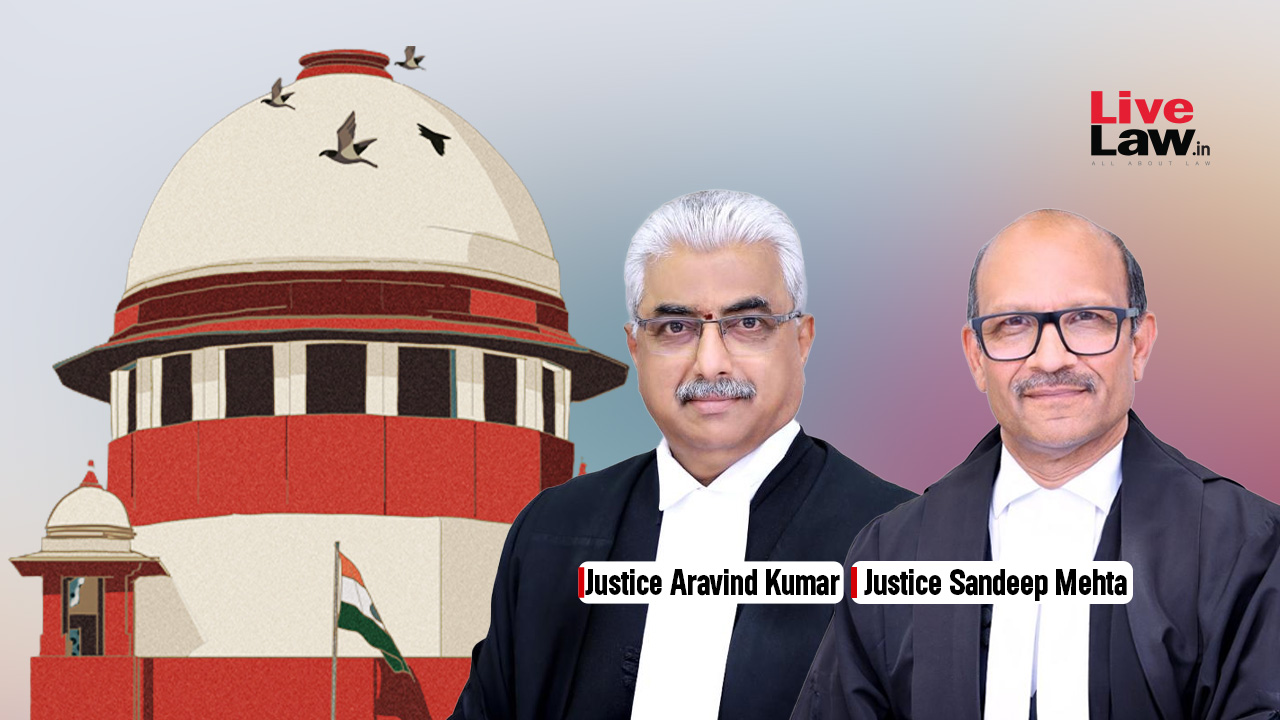The Supreme Court on Monday (Sep.1) reaffirmed that the title of the immovable property cannot be transferred without a registered sale deed.
The bench comprising Justices Aravind Kumar and Sandeep Mehta set aside the Delhi High Court’s decision, which affirmed the trial court’s order decreeing the suit for possession, mandatory injunction, and declaration despite there being no registered sale deed executed validating conveyance in the plaintiff’s favor.
The Plaintiff-Respondent claimed that he had purchased the property from his father in 1996 through an Agreement to Sell, General Power of Attorney, affidavit, receipt, and a registered Will. He alleged that his brother, Ramesh Chand (defendant), was initially a licensee who later sold half the property to a third party (Respondent No. 2) illegally.
The Defendant-Appellant claimed that the property was orally gifted to him in 1973 and that he had been in possession since then. He challenged the plaintiff’s documents as invalid and sought a declaration of ownership.
Both the trial court and the High Court ruled in favour of the plaintiff, leading to an appeal before the Supreme Court.
Holding that mere agreement to sell doesn’t legalise transfer, the judgment authored by Justice Aravind Kumar observed:
“In the instant matter, undisputedly plaintiff claims that there is only an agreement to sell, and there is no sale deed executed in his favour by the father. As per the settled position of law, this document does not confer a valid title on the plaintiff as it is not a deed of conveyance as per Section 54 of the TP Act. At best, it only enables the plaintiff to seek for specific performance for the execution of a sale deed and does not create an interest or charge on the suit property.”
Difference between sale deed and agreement to sell.
The Court explained the difference between a registered sale deed and an agreement to sell as follows :
“There is a difference between a sale deed and an agreement for sale, or a contract for sale. A contract for sale of immovable property is a contract that a sale of such property shall take place on terms settled between the parties. While a sale is a transfer of ownership; a contract for sale is merely a document creating a right to obtain another document, namely a registered sale deed to complete the transaction of sale of an immovable property. Section 54 in its definition of sale does not include an agreement of sale and neither confers any proprietary rights in favour of the transferee nor by itself create any interest or charge in the property. If after entering into a contract for sale of property, the seller without any reasonable excuse avoids executing a sale deed, the buyer can proceed to file a suit for specific performance of the contract.”
General Power of Attorney doesn’t confer title
Further, the Court rejected the plaintiff’s reliance on the Power of Attorney, stating that such documents also do not validate transfer, as “it would not ipso facto change the character of the document transforming it into a conveyance deed.”
“A power of attorney is not a sale. A sale involves transfer of all the rights in the property in favour of the transferee but a power of attorney simply authorises the grantee to do certain acts with respect to the property including if the grantor permits to do certain acts with respect to the property including an authority to sell the property,” the Court explained.
The judgment added :
“it is essential to peruse the recitals of the General Power of Attorney, which is on record and pressed into service by plaintiff. The said GPA merely authorises the grantee to manage the affairs of the suit property, which includes the power to let out the property on rent, and create a mortgage of the same, etc. However, it is silent on the aspect of conveyance. Be that as it may. The recitals of the power of attorney would indicate the intent of the grantor is to limit the powers of the grantee to only manage the suit property, and not to create any interest in his favour, which is in consonance with the settled position of law as discussed above that a power of attorney is an agency by which the agent derives the authority or the right to enter into transactions on behalf of the principal. Even if we accept the validity of the Power of Attorney in favour of the plaintiff, still it does not confer a valid title on him with respect to the suit property.”, the court observed.
Moreover, the plaintiff’s reliance on Will was disputed by the Court, after finding that it was surrounded by suspicious circumstances.
“the alleged propounder of the Will, Lt. Sh. Kundan Lal, had four children, including the plaintiff and the defendant No. 1. There is not even a whisper of reasoning as to why the propounder of the Will choose to exclude other three children from the bequest, and whether any other properties or assets were given to them. It is highly unlikely that a father would grant his entire property to one of his children, at the cost of three others, without there being any evidence of estrangement between the father and the children. This suspicious circumstance surrounding the will has not been removed by the plaintiff either. Hence, for these cumulative reasons, the Will propounded by plaintiff though registered would not confer any valid title on the plaintiff either.”, the court observed.
Resultantly, the Court allowed the appeal and dismissed the suit.
Cause Title: RAMESH CHAND (D) THR. LRS. VERSUS SURESH CHAND AND ANR.
Citation : 2025 LiveLaw (SC) 862
Click here to read/download the judgment
Appearance:
For Appellant(s) : Mr. S. Mahendran, AOR
For Respondent(s) Mrs. Rekha Pandey, AOR Mr. Shiv Prakash Pandey, Adv. Mr. Raghav Pandey, Adv. Ms. Gauri Pandey, Adv. Ms. Sharmishtha Chowdhury, Adv.







